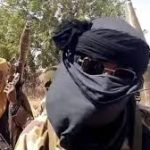At 4.10 a.m. Nigerian time on Wednesday, 1 March, Bola Ahmed Tinubu, the candidate of the ruling All Progressives Congress (APC), was declared president-elect by the Independent National Electoral Commission (INEC) in Abuja, Nigeria’s capital.
That development, on the first day of March, marked not just the conclusion of a contentious presidential election process, but also the culmination of one man’s long and difficult march to the zenith of his country’s political power. In the most wide-open presidential election Nigeria has seen since 1979, Mr Tinubu polled 8,794,726 votes to defeat 17 other candidates. His two closest opponents, former Vice President Atiku Abubakar of the PDP and former Governor Peter Obi of the Labour Party, are calling for the cancellation of the 25 February poll, alleging that it was tainted by voter suppression and the failure of INEC to upload polling units results from the over 176,000 polling stations to a web portal as stipulated in its guideline.
In recent months, Thanks to poorly hashed government policies, Nigeria has been battling cash, fuel, and electricity.Throw in the rising price of bread, and widespread insecurity; chaos was barely being kept at bay. It was under these circumstances that the APC went into the elections on Saturday.And the outcome underscored widespread dissatisfaction with the ruling party.
In the presidential poll, it came top in only 12 states across the country, down from 19 when Mr Buhari was reelected in 2019. Mr Tinubu also lost Lagos, his stronghold since 1999, to the Labour Party while Mr Buhari’s Katsina flipped to the PDP. In the North of Nigeria, where it had been dominant since 2015, the APC won only six of the 15 states in which it has governors. In the end, Mr Tinubu managed to draw the highest votes, although the votes in quantum and as a percentage of the total votes cast, were still the lowest by a winning candidate in the Fourth Republic.
Yet that feat was entirely due to the division of the opposition, which split into three, and an unresolved internal crisis in the PDP. The Labour Party, whose candidate was the PDP vice presidential candidate in 2019, seized the strongholds of the main opposition party in the South-east, South-south and North-central. In Lagos where Mr Obi embarrassed Mr Tinubu, the PDP candidate suffered a worse rout, leaving Mr Tinubu with a net gain of about 500,000 votes over Atiku, his closest rival. And in Kano, where the APC share of the votes fell by half, the beneficiary was the NNPP which also seized most of what had been the PDP shares in previous elections. The crisis in the PDP also saw the party losing strategic support in especially Rivers, Oyo and Benue states.
Both runners up parties had earlier rejected the results, described the poll as a sham, and demanded a rerun.
The PDP and Labour Party also protested the inability of the Independent National Electoral Commission, INEC, to upload the Presidential election results, from each of the 176,606 polling units, on an electronic portal accessible to all citizens as earlier promised.
To emerge as Nigeria’s President, Section 134 of the constitution states that a presidential candidate must score the highest number of votes cast at the election. In addition, the candidate must also score at least a quarter of the votes cast in each of at least 25 states in the Federation including the Federal Capital Territory.
Mr Tinubu met this requirement.
When he is sworn in on 29 May, Mr Tinubu will become Nigeria’s fifth president of the Fourth Republic. Despite being declared president-elect in a controversial election scoring the lowest votes by a winner since Nigeria returned to democracy in 1999, the long-term kingmaker of Lagos, could be nearing the end of his political rulership. Especially after having been rejected in Lagos, a state he has long controlled.
Critics see a different Tinubu. They point to controversies surrounding his age, parental ancestry, educational background and health. Allegations of corruption have lingered though he has been tried and acquitted. However, while Tinubu’s state campaign was largely based on his record as governor of Lagos state, Nigeria’s commercial capital; he was soundly defeated in Lagos by Peter Obi, a former governor of Anambra State..
Obi’s relatively unknown Labour Party galvanised the interest of young, urban dwellers and took the country’s two-party system to task in the 2023 presidential election. Nigeria has the largest population of youth in the world, with a median age of 18.1 years. About 70% of the population are under 30, and 42% are under the age of 15. The youth are often left with the shorter end of the stick when it comes to governance and economic indices.
As the saying goes; history remembers both the king whose reign brought succour to the people and the one whose reign brought agony and pain. Against the odds, Mr Tinubu has yet another opportunity to determine how history will remember his tenure.
In the meantime, people can only hope.




Leave a reply